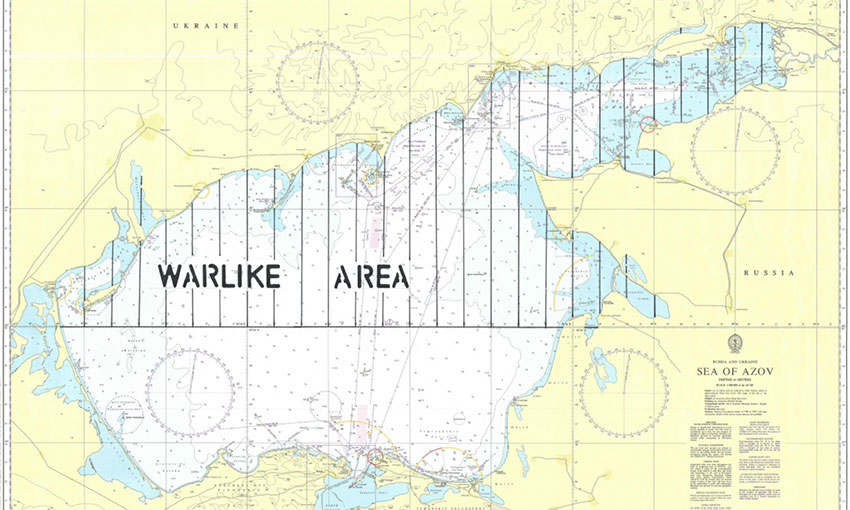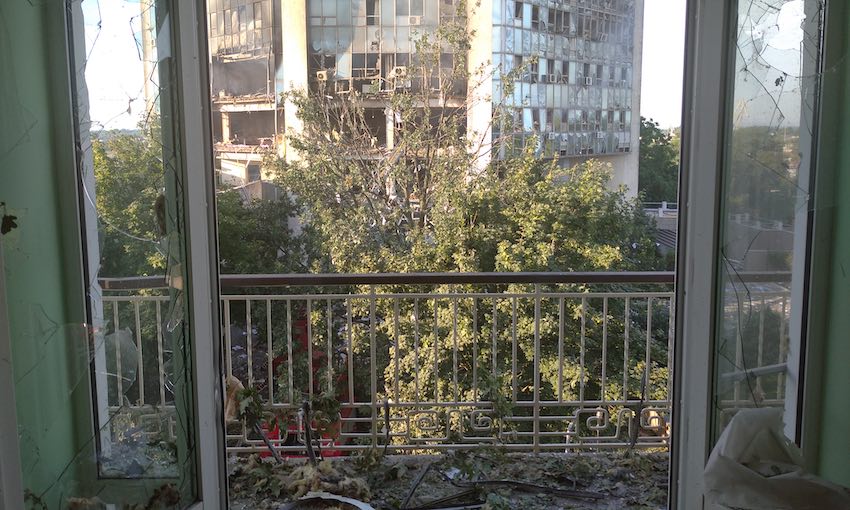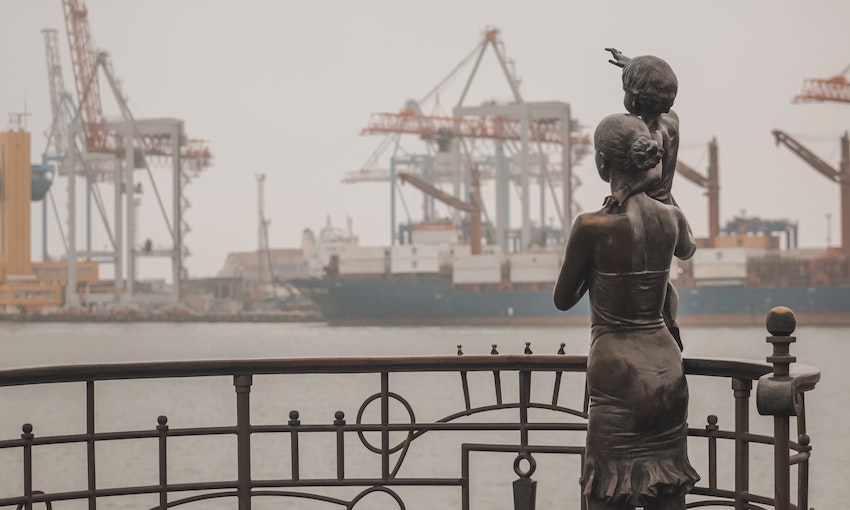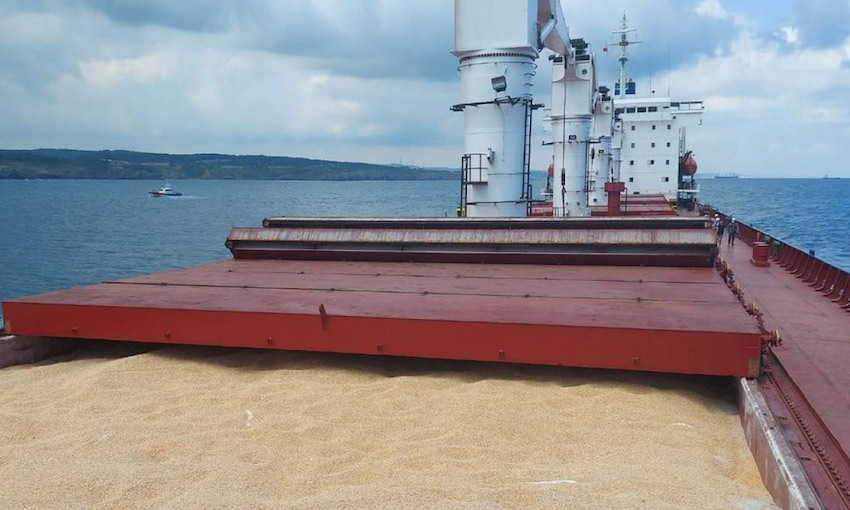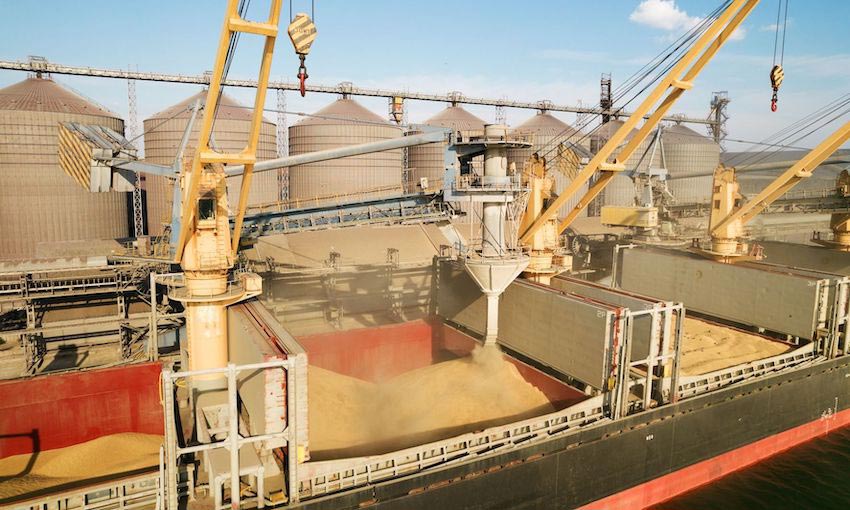THE Joint Negotiating Group and the International Transport Workers’ Federation have designated areas in the Black Sea and the Sea of Azov Warlike Operations Areas, triggering an increased security level and other entitlements for seafarers in the war zone.
The designation was agreed yesterday at an emergency meeting between the JNG and ITF on the crisis in Ukraine.
The JNG and ITF, as social partners, negotiate and ensure application of the International Bargaining Forum (IBF) agreement, which is the only international collective bargaining agreement covering terms and conditions for seafarers in international trade on more than 9000 ships.
The parties agreed that the welfare of seafarers and the protection of their rights in this situation was paramount to the spirit and intent of the IBF agreement.
IBF Warlike Operations Areas were designated for the Sea of Azov (north of latitude 46°N), the northern Black Sea region and all ports in Ukraine. Under this classification, seafarers onboard IBF covered ships are entitled to receive:
- bonus equal to basic wage, payable for five days minimum plus per day if longer;
- doubled compensations for death and disability;
- the right to refuse sailing, with repatriation at company’s cost and compensation equal to two months’ basic wage
Also under the agreement, it is recommended that vessels operate at ISPS Level 3. This refers to the International Ship and Port Facility Security Code, which is implemented through the International Convention for the Safety of Life at Sea (SOLAS).
According to the IMO, setting ISPS Level 3 should be an “exceptional measure applying only when there is credible information that a security incident is probable or imminent”.
The JNG and ITF said they would revisit their designation on a two-weekly basis to review the period of validity and, if necessary, the terms and conditions as well as the coordinates.
In addition to the establishment of the ‘Warlike Operations Areas’ around Ukraine and adjacent waters, the JNG and ITF also committed to further high-level discussions to monitor and review mechanism to ensure seafarers’ safety and security in the rapidly evolving crisis.
The facilitation of support from governments worldwide for potential refugee arrangements for Ukrainian seafarers and their families was also considered. The social partners agreed to increase pressure on governments to waive visas for Ukrainian seafarers to ease their repatriation.
Australasian unions call for action
The Australian Maritime Union, the Rail and Maritime Transport Union (in New Zealand) and the Maritime Union of New Zealand have both issued calls to take action on Russian-flagged ships in response to Russia’s ongoing invasion of Ukraine.
MUA national secretary Paddy Crumlin, who is also president of the ITF, has written to Prime Minister Scott Morrison, calling on him to enact “formal, practical sanctions within Australia’s sphere of influence”.
Mr Crumlin said these sanctions should be meaningful steps in our own region to place pressure on Russia’s economic, social and strategic interests.
“This should take the form of a national embargo on all Russian-registered ships or vessels or those which are majority owned or controlled by Russian businesses or individuals, or which may be carrying a predominantly Russian cargo,” Mr Crumlin said in a statement.
“The MUA condemns unequivocally Putin’s unjustifiable aggression and invasion of Ukraine, and we extend our solidarity and support to the innocent residents of Ukraine whose lives are imperilled by this completely immoral act of imperialism.”
Mr Crumlin noted that major shipping lines, including Maersk and MSC, have ceased container shipping to Russia and countries have enacted embargoes against Russian civil aircraft.
“While no global conflict should be used by Australian political actors to score points in the lead up to a federal election, we nonetheless call upon the Australian government to join other governments around the world in refusing to provide economic succour to the Putin regime,” Mr Crumlin.
“The union also asks that the Australian government continue to advocate for an immediate ceasefire by all parties and for diplomatic solutions to be enacted in line with the position of the United Nations.”
Meanwhile in New Zealand, Rail and Maritime Transport Union general secretary Wayne Butson said workers may deliver letters of protest to the captain of any Russian-flagged vessels in New Zealand ports.
He said it is important to note any protest was not anti-Russian crews, but against aggression and war decisions at the leadership level.
MUNZ national secretary Craig Harrison said many Russian and Ukrainian crews worked in New Zealand waters as both nations had big maritime industries.
He said there is not a large number of Russian-flagged vessels in New Zealand ports, but there are some including large fish factory trawlers in ports such as Lyttelton.

